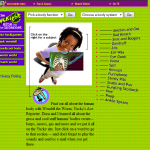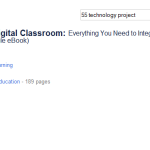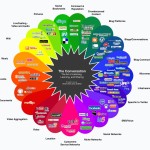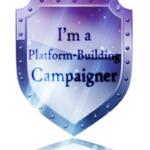September 14, 2012
8 Free Online Marketing Tools for Writers
Last week, I covered 6 FREE Online Tools for Indie Writers. Today, we’ll market your book. There’s a lot of internet information on this subject, so I’ll focus on FREE tools that will boost your sales. I like Free. When you’re a new writer, with no revenue stream, that’s important.
Blogs
This is a great invention for a writer. You get to introduce yourself to the reader, and s/he gets to experience your authorial skills first hand. Along the way, you market your book.
According to one blogger I’ve talked to, since she started this marketing tool, her books sales have tripled. this would come as no surprise to salespeople. They know that people like doing business with friends. Why? They know what to expect. They trust them. A blog makes you a friend of your reader, one they trust to provide good information because you’ve done it in the blog. Here’s mine that promotes K-8 technology books, and a how-to book on getting into the Naval Academy.
Where do you get a blog? The most popular are WordPress and Blogger. I prefer the former because it’s a cleaner, less cluttered presentation and with great wordpress hosting I’m sure that I have a fully optimized site. When working on your marketing portfolio, you may look into a swipe file inspiration to make the process more manageable.
Google eBooks
Google eBooks (now called Google Play) is the search giant’s ebook answer to Amazon Kindle (see my article here). There is no charge for set-up. I sell all of my ebooks there. Unlike Amazon Advantage where you have to redo book offerings for various national markets around the world, Google Play requires only you bubble in the markets you wish your books sold in. They have a dashboard–clumsy compared to Amazon’s sleekness–that lets you track sales. I get checks for about 63% (Google takes 37% for administrative compared to Amazon’s 55%) of sales revenue which usually confuse me because they don’t seem to match any sales period. But–they are checks. I cash them.
YouTube Videos
Lots of writers are now creating video trailers of their books and uploading them to YouTube. The power of multimedia to sell your book is statistically unrivaled by any other outlet. Writers conferences I attend say even done badly, they’re better than anything else. Here’s one by Kaleb Nation. He discusses writing his fantasy novel. The mix of appealing keyboard sounds, unique music, understated-but-effect visuals has brought over 58,000 viewers to hear his thoughts–an unknown author with no name recognition–on writing a book.
He’s not the only one. When I searched YouTube for ‘book trailers’, I got over 8500 hits–mostly from names I had never heard of.
Pay Pal
PayPal isn’t a stand-alone marketing tool, rather an add-on. It is an e-commerce business which allows buyers to pay you using their checking, Mastercard, Visa, PayPal. PayPal is free to set up, though they take a .percent for their trouble. What I like (and there’s lots I don’t like about this giant of e-commerce–much of it rhymes with ‘customer service’) is that buyers need not have a PayPal account. They can use their credit card as a guest.
Let’s say you’ve set up a website to sell your book. You install a PayPal button (free from PayPal’s site) as your preferred method of payment. When customers purchase your book, PayPal transfers their money into your account, notifies you and allows you to print a packing slip to include in the shipment.
Twitter is as much about marketing your book as a support system for writing. Sure, you share the news that your book is available, where to buy it, but your Tweeple are interested because they’ve gotten to know your writing style. And they like it. they assume that the way you write with Twitter’s 140-character limit mirrors how you tell a story. Plus, if you’ve taken the time and effort to develop an efriendship with them, they’ll give your nascent writing efforts a try. I like Twitter so much, I wrote this article on 12 ways Twitter Makes You a Better Writer (and Person). How about this on on 16 Tips Picked Up From Twitter.
It’s worth noting that hard-sell doesn’t work on Twitter. Being a friend does. An overt sales pitch is more suited for your book’s website than this forum.
I can’t say definitively that FB sells books for me, but NOT having it would probably hurt my sales. It’s an online presence that is expected of all writers. It is one more arrow in your quiver of legitimacy. Once you have a FB address, you can repost articles to it, add a FB ‘like’ box to your blog (please ‘like’ me in the sidebar–I have so few! Unlike my tech blog where I have dozens. I wonder why that is… Anyone, back to my original thoughts) share information about your writerly efforts, join others with similar goals.
Stumble On/Digg/Pinterest and other
These bookmarking sites are a great way to promote your books. You set up an account with any/all of these. Every time you post a blog, be sure to add it to them. And, from your Scribd.com account, you can post your ebooks to a whole list of social network accounts. Don’t miss this method. It’s free and it works.
Book Competitions
There are hundreds of these. You can get lists from places like Poets and Writers, under their Grants and Awards tab. Some charge an entry fee. Others, like Amazon’s Breakthrough Novel Award, are free. If you’re hoping to find an agent, it makes a big difference to them if you’ve received an award from a reputable competition.
Jacqui Murray is the editor of a K-6 technology curriculum, K-8 keyboard curriculum, creator of two technology training books for middle school and six ebooks on technology in education. She is the author of Building a Midshipman, the story of her daughter’s journey from high school to United States Naval Academy. She is webmaster for six blogs, an Amazon Vine Voice book reviewer, a columnist for Examiner.com, Editorial Review Board member for Journal for Computing Teachers, Cisco guest blog, Technology in Education featured blogger, IMS tech expert, and a bi-weekly contributor to Write Anything. Currently, she’s editing a thriller that should be out to publishers next summer. Contact Jacqui at her writing office or her tech lab, Ask a Tech Teacher.







